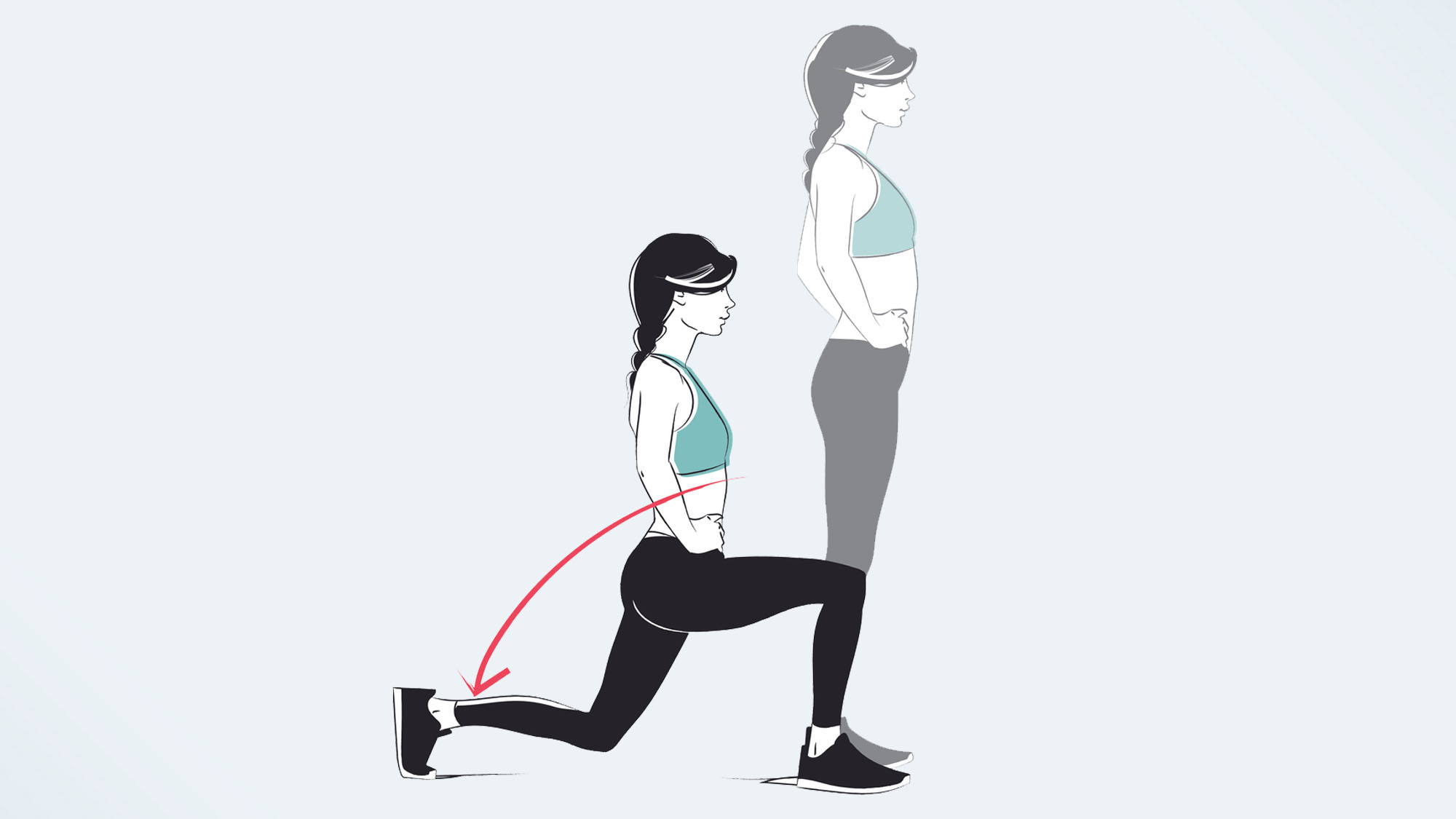I did 100 lunges a day for a week — here’s what happened
Looking to build your lower body? Try this.

When it comes to building your lower body strength, lunges are pretty efficient exercise — not only do they target your glutes, quads, hamstrings and calves, but you’re also working your core, improving your posture, and range of motion. But what would happen if you added 100 lunges to your daily routine for a week? I set out to find out.
As a fitness editor, I’m no stranger to a weird fitness challenge. You can read what happened when I did 100 dead bugs a day for a week, 30 sit-ups a day for 30-days and when I added a minute long plank to my morning routine.
It goes without saying, what works for me might not work for you. If you’re a complete beginner, starting with 100 reps of any exercise is a lot, and it’s a good idea to check your form with a personal trainer before increasing the number of reps you do, or adding weight to an exercise.
How to do a reverse lunge

Let’s start with how to do a lunge with correct form. To do a reverse lunge, you’ll want to start at the top of your exercise mat with your feet shoulder-width apart. Engage your glutes (squeeze them together) and brace your core as you step backward with your right or left foot, making sure your legs stay shoulder-width apart and your hips stay facing forward.
Keeping your spine perpendicular to the floor, lower your body to the ground until both legs are at a 90-degree angle. The front knee should be over the front ankle, and your back knee should be underneath your hip. Press back from the back foot into your starting position and repeat the move on the other side.
For more details, and for information on variations, check out our guide on how to do a lunge.
I did 100 lunges a day for a week — here’s what happened
On day one of the challenge, I realized just how many 100 lunges was. I opted for bodyweight reverse lunges, doing four sets of 25 reps on each leg. It was repetitive, and pretty boring, but didn’t feel overly challenging. The next day I had a slight twinge in my glutes, but nothing too intense.
Sign up to get the BEST of Tom's Guide direct to your inbox.
Get instant access to breaking news, the hottest reviews, great deals and helpful tips.
On day two, I added weights to the exercise, with a 5kg dumbbell in each hand (check out our best adjustable dumbbells here). This time, I did forward lunges, and alternated between which leg I stepped forward on each time. I did two sets of 50 repetitions, with a two minute rest between sets. The weights definitely made things more challenging, and I had to really concentrate on my form for the final few reps, making sure I wasn’t arching my back, or collapsing forward into the movement.
On day three, I could definitely feel the 200 lunges in my legs as I started my challenge, so I opted for static lunges instead to mix things up. This time I did 25 reps on one leg, before swapping to the other, twice through. Again, I forced myself to slow the movement down and think about keeping my core engaged as I lunged — three days into the challenge I was realizing how often I rushed through my workouts. Really focusing on one exercise forced me to really think about whether or not I was engaging my glutes and squeezing my core during the movement.
For days four and five, I stuck with static lunges, adding a 5kg dumbbell, then a 6kg dumbbell in each hand, and keeping the movements slow and controlled. By now I was 500 lunges in, and my legs could feel the twinges of hard work. I also opted to do the lunges before I put my running shoes on and head out the door for a run — I’m definitely guilty of just heading out without doing any warm-up, so the lunges helped me ‘switch on’ the muscles I needed when running.
By day six, the end was in sight, but I was thoroughly sick of lunges. I decided to mix things up and try side, or lateral lunges, stepping out to the side, rather than forward. Lateral lunges typically target the inner and outer thighs, as well as building stability in the ankles and knees — all things that are important for runners. I found the lateral lunges much harder after days of reverse lunges, but it was nice to mix things up. As a reminder, it’s not a good idea to train the same muscle group every single day.
At last, the final 100 lunges. For the sake of an interesting article, I decided to pivot to jumping lunges. I did ten at a time pausing for 30 seconds between each set to let my, now shaky legs, to recover.
My lessons after seven days? I’m definitely done with lunges for a long time, and while I haven’t noticed any difference in the mirror — it takes a lot longer than seven days to build real muscle, but I have seen benefits of activating my leg muscles before running. I also remembered the importance of really nailing your form — sometimes it’s worth dropping the dumbbells and your ego, and really slowing down to ensure you’re getting things right. I’ll definitely be doing lunges in the future, but 100 reps of anything a day, as I’m learning, is enough to put you off for a while.
Looking for more workout inspiration? Here's what happened when I tried the viral 25-7-2 workout for a week, and I tried Carrie Underwood's leg workout, the best exercise to sculpt your arms using just your body weight, three of the best lower-body resistance band exercises.

Jane McGuire is Tom's Guide's Fitness editor, which means she looks after everything fitness related - from running gear to yoga mats. An avid runner, Jane has tested and reviewed fitness products for the past five years, so knows what to look for when finding a good running watch or a pair of shorts with pockets big enough for your smartphone. When she's not pounding the pavements, you'll find Jane striding round the Surrey Hills, taking far too many photos of her puppy.
